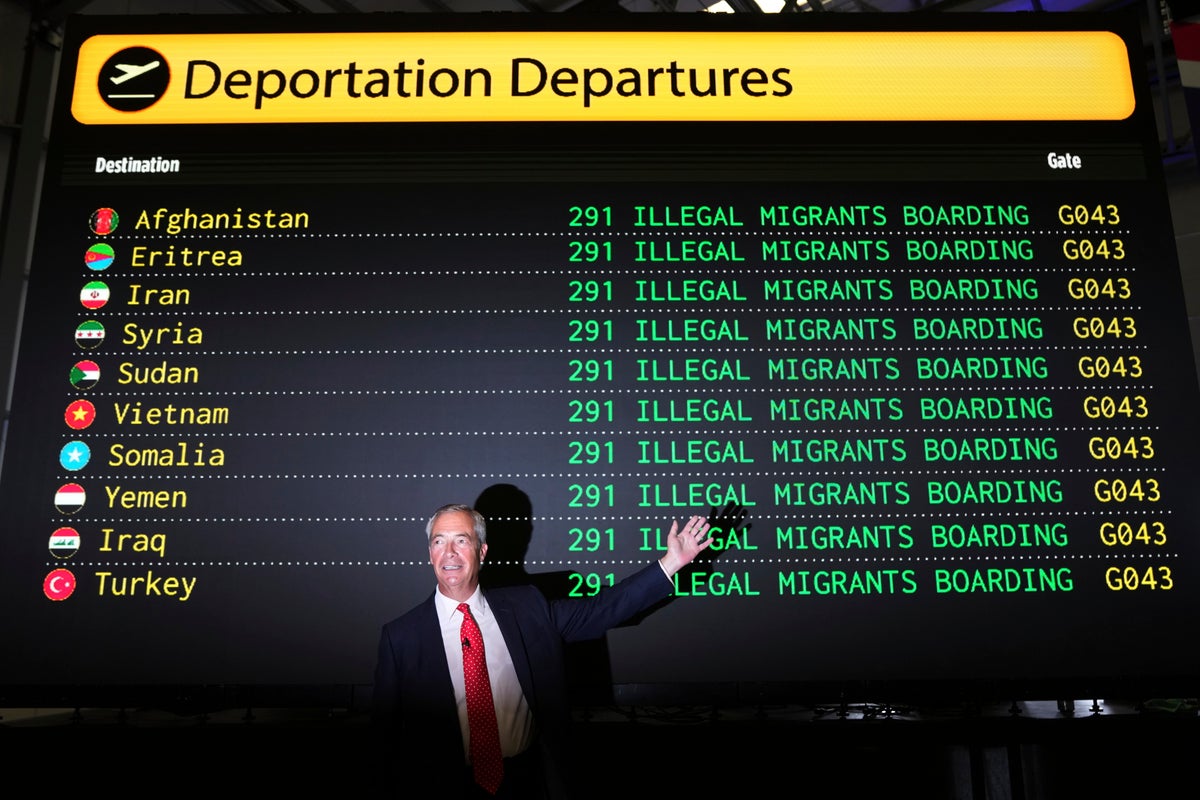Labour tried a new line of attack on Nigel Farage today as it attempted to wrest the initiative back from him. Nick Thomas-Symonds, the minister for EU relations, attacked Farage’s pledge to reverse Keir Starmer’s trade deal with the EU, warning that doing so would push up food prices.
The Reform UK leader was conspicuous by his absence when the EU deal was done in May. He evidently doesn’t want to remind the public about his role in securing Brexit, now that a majority think it was a mistake.
Luckily for Farage, immigration – not the EU – is increasingly on voters’ minds today. Labour is divided, with two former home secretaries, David Blunkett and Jack Straw, calling for the UK to suspend its membership of the European Convention on Human Rights (ECHR) to help it tackle the small boats crisis.
Although the government is reviewing how British courts implement ECHR clauses on family life and torture, Starmer won’t pull out. As a lawyer, he wrote a 900-page tome seen as the bible on European human rights law. Last year, he recalled how he learned about the ECHR in a Leeds University law library, saying it “inspired me in everything I have done since and I still draw strength from it and value from it every day”.
I think ministers are right to believe that withdrawing from the ECHR would make it harder to win the international cooperation needed to halt the small boats. But they do need to reform the way the convention is interpreted by British courts and join other countries in reforming it and other outdated international conventions.
There are splits inside the government, too. Although Starmer has said “you can’t out-Farage Farage”, his own advisers don’t seem to have got the memo. Morgan McSweeney, the powerful Downing Street chief of staff, believes Labour can beat the right-wing populists at their own game. That is why ministers were authorised to attack Farage as being on the same side as the paedophile Jimmy Savile on internet regulation.
However, there are also mixed messages: Starmer’s “one in, one out” returns deal with France was presented as a game-changer, yet ministers could not say how many migrants would be returned. As one Starmer ally told me: “It’s confused. A mixed signal is no signal or not one people want to listen to.”
Labour’s internal tensions over the Farage effect go wider than immigration. I’m told No 10 strategists want to ban talk of public sector reform because they regard it as “woke-coded”, worrying it could form part of Farage’s criticism of diversity, equity and inclusion (DEI) measures. A strange overreaction since Labour must surely support reform.
This edict has perplexed soft-left ministers and Blairites, who suspect Starmer’s key advisers want to copy Farage (and Donald Trump) by picking fights – with the civil service, trade unions and the Labour left. Pat McFadden, the Blairite Cabinet Office minister responsible for Whitehall reform, rejects such an approach. He wants to “forget chainsaws and wrecking balls”, insisting that it is “not what we are about” and preferring incremental change.
A confrontational, macho approach worked for Starmer in opposition – when Labour defined itself against the Corbynistas – but it’s not working in government. There is no alternative to Starmer’s painstaking approach on the small boats, which has the benefit of reflecting his own character as a pragmatic problem-solver.
In directing Labour’s fire at Farage, Downing Street’s critics worry that it risks building him up and magnifying his message on his strongest suit – immigration. Although Labour can’t vacate this playing field, the doubters have a point. In appearing to ape Reform, Labour risks alienating more progressive voters; more have already deserted Labour for the Greens, Liberal Democrats and Jeremy Corbyn’s new socialist party than for Reform.
The Conservatives are split over Farage, too. Some figures tell me that in chasing Reform, Kemi Badenoch is in effect saying: “Reform is right, don’t vote for it!” Indeed, Kevin Hollinrake, the Tory chair, told Times Radio today that Farage’s immigration blueprint is a “cut and paste” of the Tories’ policies, but conceded the Tories “made our mistakes” on the issue. That is why voters won’t listen to them on it.
Badenoch’s Tory critics fear that obsessing about Farage alienates centrist voters. Bizarrely, she makes no effort to woo the many Tories who switched to the Lib Dems at last year’s election – even though her party desperately needs to regain the blue wall in southern England.
As they fret over Reform’s 10-point opinion lead, Labour and the Tories make the same mistake: putting off natural supporters on their party’s left flank who care more about the economy and public services than immigration. If voters think they are not addressing such issues, the two parties risk becoming trapped in no man’s land as they try to compete with Farage on immigration – even though his speech yesterday proved he will always outbid them.
As well as attacking Farage, Labour and the Tories need to look after their own.



